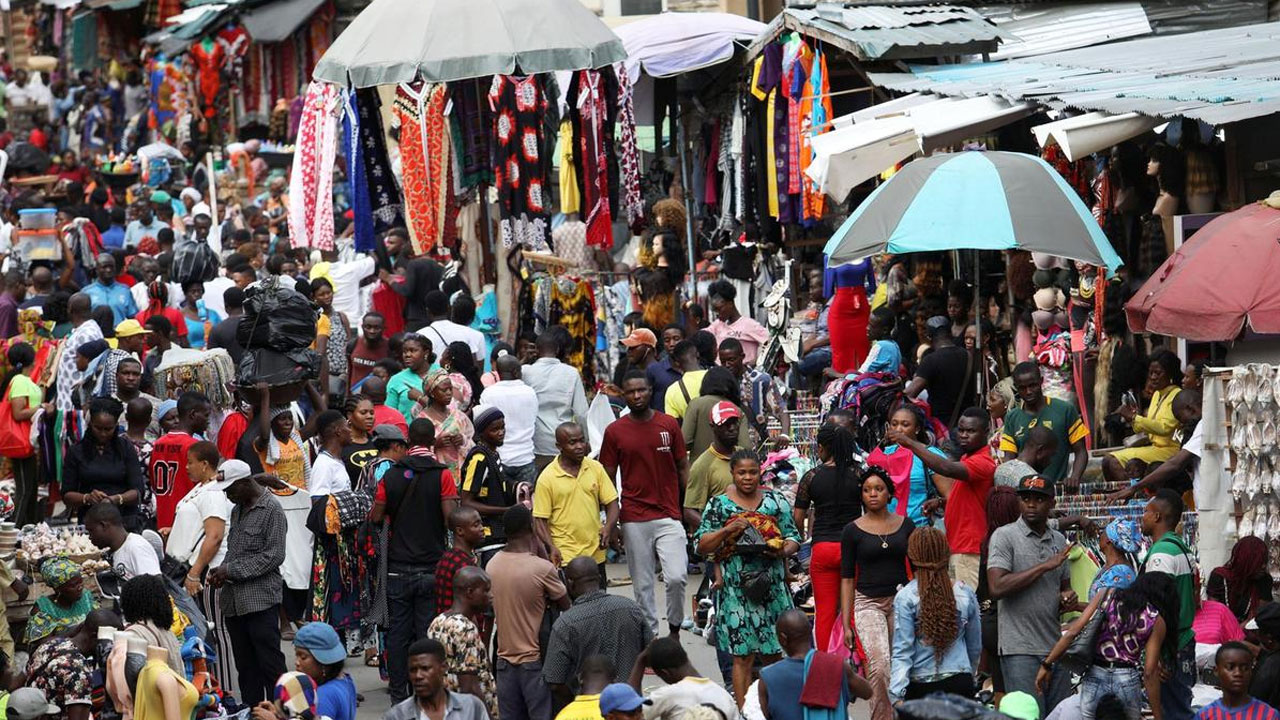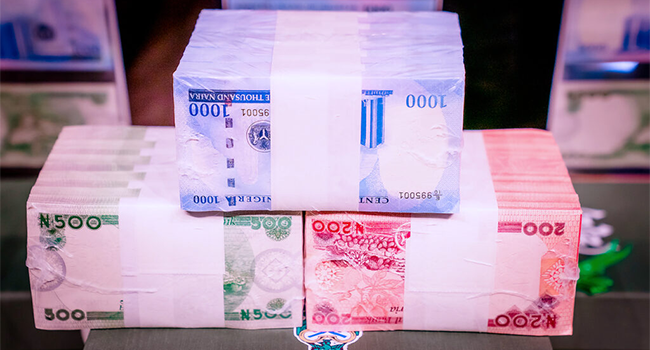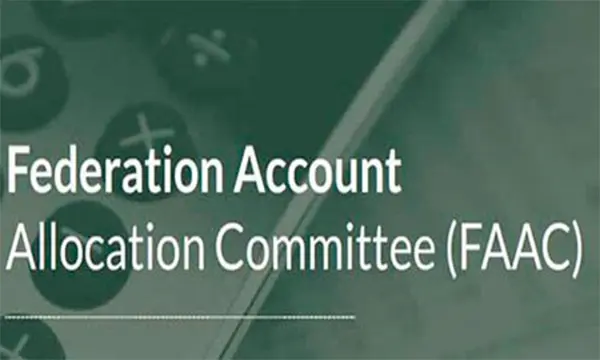Headlines
Food, energy prices worsen inflation for households

As expected, Nigeria’s inflation rate accelerated to a new 17-year high of 21.09 per cent in October, 0.32 per cent points increase from 20.77 per cent recorded in September, raising concerns for Nigerians already battling with weak household incomes and import pass-through costs.
Already, there are concerns that the country’s inflation trend may not have reached its peak considering that triggers like intermittent fuel scarcity witnessed during the review period, stubbornly high gas and energy prices, lingering currency pressures and build-up of higher naira liquidity as the campaign season starts, are yet to be addressed.
According to the latest Consumer Price Index (CPI) report released by the National Bureau of Statistics (NBS) yesterday, food inflation also surged to 23.72 per cent in the review month, which is 0.38 per cent higher than the 23.34 per cent rate recorded in the previous month and 5.38 per cent higher compared to the 18.34 per cent recorded in October 2021.
Indeed, higher inflation and exchange rate volatility are associated with higher pass-through of exchange rates into import prices. Lingering currency pressure has led to higher prices in the last few weeks.
On a month-on-month basis, the headline inflation rate moderated to 1.24 per cent compared to 1.36 per cent recorded in the previous month, but higher than the 0.98 per cent recorded in the corresponding period of 2021. The increase in the composite index was due to increases in the core and food inflation rate in the period under review.
According to NBS, the rise in the food inflation rate was caused by increases in prices of bread and cereals, food products, potatoes, yams and other tubers and oil and fat.
In his reaction, Chief Executive Officer of Dairy Hills Limited, Kelvin Emmanuel, argued that since the metrics on which inflation are calculated rely on weight averages of food and energy prices across 36 states plus the Federal Capital Territory (FCT), “it is suspicious to assume that the economy has recorded a decreased headline inflation on a month-on-month basis, based on the same food and energy index that has been heavily impacted by floods across the country.”
It is important to note that within the last 12 months, the headline inflation, according to NBS, has risen by 5.09 per cent, precipitating a four per cent increase in the Monetary Policy Rate (MPR), and a widening of the asymmetric corridor to 800 basis points from the 700 basis points recorded a year ago.
“This is because the difference between the standing deposit facility rate (SDFR) or the overnight rate at which deposit money banks place money at the CBN, and the rate at which CBN lends money to deposit money banks, has risen from five per cent for SDFR to 8.5 per cent, while the Standing Deposit rate (rate at which the CBN lends money to the deposit money banks) was risen from 11.5+1 12.5 per cent to 15.5+1 to 16.5 per cent,” he explained.
Emmanuel added that as this spread widens, and capital becomes more expensive, the incentive for financial institutions to lend money to the real sector that has the capacity to raise production output, and reduce the shocks from demand pull inflationary buffers, suffers.
Chief Executive Officer of Wyoming Capital and Partners, Tajudeen Olayinka, added that the new inflation number confirmed that “the very difficult state the CBN’s demand side actions are beginning to subject the economy into.”
Olayinka noted that even when it was obvious that the inflation experienced in Nigeria is driven largely by supply side factors, the apex bank has used more demand side management tools to deal with it, since the fiscal authority is unable to manage the situation.
“What we are seeing now is an indication that some of the demand side actions of the CBN are beginning to filter negatively into the supply side of the economy, thereby aggravating the already bad supply side situation.
“This is what happens when economic agents are compelled to engage in a prolonged re-pricing of assets across markets and instruments, including loans and advances by banks. It is really a difficult time for Nigeria, as monetary and fiscal authorities appear to be helpless in dealing with the situation.
“It is also one of the reasons CBN is trying to redesign the Naira, in a way to curtail demand side pressure from the use of illegal money, as further hike in MPR by CBN could endanger the economy.”
He said the only way out is to allow the economy to run its full course of adjustment, which will naturally come with short run adjustment pains.
However, he stated that in the long run when all factors become variable, the country will definitely benefit from long run normal prices.
Similarly, Prof. Sheriffdeen Tella said he was not surprised that the inflation rate has jumped to as high as 21.09 per cent.
The professor of Economics at Olabisi Onabanjo University, Ago Iwoye, Ogun State, said the high inflation rate was expected – be it marginal or significant – particularly after the massive depreciation of the naira to over N900 to $1 in the black market.
He explained that the development is just as the rebound would have effects of lowering cost and selling price, if it is continuous and sustainable.
Tella equally noted that the price of food would not come down easily due to continued insecurity, and now aftermath of flooding.
READ ALSO: Gunmen kill 9 family members in Plateau community
“It is unfortunate that the situation is getting worse by the day. Many households have to grapple with the high inflation rate that currently hit the roof of 21.09 per cent. This is worrisome and not encouraging.
“The nation’s currency is plummeting against the dollar every day. Flooding is ravaging the states, while insecurity is escalating. The trend is not good for the economy; it is not good for the citizens,” he said.
He urged the government to put an end to insecurity, compensate flood victims while the Central Bank of Nigeria should rise to the occasion to put a stop to the Naira free-fall.
Concerned Nigerians, however, called on the Federal Government to take drastic measures such as encouraging more production activities to address what they termed the galloping inflation the country is experiencing.
Chief Executive Officer of Capital Multimedia Limited, Salomey Eferemo, said the rising inflation is worsening the poverty index.
Eferemo blamed the lack of production capacity for the spike. “We are not producing; we have a mono economy. That is not good for us, and more of our people are being pushed into poverty.
“Government needs to take deliberate action to stem this crisis. We need to invest in production. We need to invest in the education of our people so that we can stimulate production and inflation will naturally slow down.”
On his part, the National President of All Farmers Association of Nigeria, Kabir Ibrahim, said: “We must incentivise the farmers to do year-round production since we cannot import from anywhere, because the food inflation is actually global.
“The farmers should embrace System of Crop Intensification (SCI), science, Technology and Innovation (STI) and Agricultural Biotechnology systems,” he offered.
Headlines
Noble Ladies Champion Women’s Financial Independence at Grand Inauguration in Abuja

Women from diverse backgrounds across Nigeria and beyond gathered at the Art and Culture Auditorium, Abuja, for the inauguration and convention of the Noble Ladies Association. The event, led by the association’s Founder and “visionary and polished Queen Mother,” Mrs. Margaret Chigozie Mkpuma, was a colourful display of feminine elegance, empowerment, and ambition.
The highly anticipated gathering, attended by over 700 members and counting, reflected the association’s mission to help women realise their potential while shifting mindsets away from dependency and over-glamorization of the ‘white collar job.’ According to the group, progress can be better achieved through innovation and creativity. “When a woman is able to earn and blossom on her own she has no reason to look at herself as a second fiddle,” the association stated.
One of the association’s standout initiatives is its women-only investment platform, which currently offers a minimum entry of ₦100,000 with a return of ₦130,000 over 30 days—an interest rate of 30 percent. Some members invest as much as ₦1 million, enjoying the same return rate. Mrs. Mkpuma explained that the scheme focuses on women because “women bear the greater brunt of poverty” and the platform seeks “to offer equity in the absence of economic equality.”
Education is also central to the Noble Ladies’ mission, regardless of age. Their mantra, “start again from where you stopped,” encourages women to return to school or upgrade their skills at any stage in life. The association believes that financial stability is vital in protecting women from cultural practices that dispossess widows of their late husbands’ assets, while also enabling them to raise morally and socially grounded families.
Founded on the vision of enhancing women’s skills and achieving financial stability, the association rests on a value system that discourages pity and promotes purpose. “You have a purpose and you build on that purpose to achieve great potentials and emancipation,” Mrs. Mkpuma said.
A criminologist by training and entrepreneur by practice, she cautions against idleness while waiting for formal employment. “There are billions in the informal and non-formal sectors waiting to be made,” she said, rejecting the “new normal of begging” and urging people to “be more introspective to find their purpose in life and hold on to it.”
Mrs. Mkpuma’s management style keeps members actively engaged, focusing on vocational skills and training to prepare them for competitive markets. She is exploring “innovative integration of uncommon technologies” and is already in talks with international franchises to invest in Nigeria, with Noble Ladies as first beneficiaries.
The association’s core values include mutual respect, innovation, forward-thinking, equal opportunity, and financial emancipation. With plans underway to establish a secretariat in the heart of Abuja, the group aims to expand its impact.
The event drew high-profile guests, including former Inspector General of Police, Mike Okiro, and a host of VIPs, marking a significant milestone in the association’s drive for women’s empowerment.
Headlines
NEPZA, FCT agree to create world-class FTZ environment

The Nigeria Export Processing Zones Authority (NEPZA) has stepped in to resolve the dispute between the Federal Capital Territory Administration and the Abuja Technology Village (ATV), a licensed Free Trade Zone, over the potential revocation of the zone’s land title.
Dr. Olufemi Ogunyemi, the Managing Director of NEPZA, urged ATV operators and investors to withdraw the lawsuit filed against the FCT administration immediately to facilitate a roundtable negotiation.
Dr. Ogunyemi delivered the charge during a courtesy visit to the Minister of the Federal Capital Territory, Barrister Nyesom Wike, on Thursday in Abuja.
You will recall that the ATV operators responded to the revocation notice issued by the FCT administration with a lawsuit.
Dr. Ogunyemi stated that the continued support for the growth of the Free Trade Zones Scheme would benefit the nation’s economy and the FCT’s development, emphasizing that the FCT administration recognized the scheme’s potential to accelerate industrialisation.
Dr. Ogunyemi, also the Chief Executive Officer of NEPZA, expressed his delight at the steps taken by the FCT minister to expand the economic frontier of the FCT through the proposed Abuja City Walk (ACW) project.
Dr. Ogunyemi further explained that the Authority was preparing to assess all the 63 licensed Free Trade Zones across the country with the view to vetting their functionality and contributions to the nation’s Foreign Direct Investment and export drives.
“I have come to discuss with His Excellency, the Minister of the Federal Capital Territory on the importance of supporting the ATV to succeed while also promoting the development of the Abuja City Walk project. We must work together to achieve this for the good of our nation,” he said.
On his part, the FCT Minister reiterated his unflinching determination to work towards President Bola Ahmed Tinubu’s Renewed Hope Agenda by bringing FDI to the FCT.
“We must fulfil Mr. President’s promises regarding industrialization, trade, and investment. In this context, the FCT will collaborate with NEPZA to review the future of ATV, a zone that was sponsored and supported by the FCT administration,” Wike said.
Barrister Wike also said that efforts were underway to fast-track the industrialisation process of the territory with the construction of the Abuja City Walk.
The minister further said the Abuja City Walk project was planned to cover over 200 hectares in the Abuja Technology Village corridor along Airport Road.
According to him, the business ecosystem aimed to create a lively, mixed-use urban center with residential, commercial, retail, hospitality, medical, and institutional facilities.
He added that the ACW would turn out to be a high-definition and world-class project that would give this administration’s Renewed Hope Agenda true meaning in the North-Central Region of the country.
Barrister Wike also indicated his continued pursuit of land and property owners who failed to fulfil their obligations to the FCT in his determination to develop the territory.
Headlines
Benue IDPs block highway, demand return to ancestral homes

Vehicular movement along the Yelwata axis of the Benue–Nasarawa highway was brought to a standstill on Wednesday as Internally Displaced Persons, IDPs, staged a protest, demanding immediate return to their ancestral homes.
The protesters, believed to be victims of persistent attacks by suspected herdsmen, blocked both lanes of the busy highway for several hours, chanting “We want to go back home”.
The protest caused disruption, leaving hundreds of motorists and passengers stranded.
Eyewitnesses said the displaced persons, many of whom have spent years in overcrowded IDP camps, are expressing deep frustration over the government’s delay in restoring security to their communities.
“We have suffered enough. We want to return to our homes and farms,” one of the protesters told reporters at the scene.
Security personnel were reportedly deployed to monitor the situation and prevent any escalation, though tensions remained high as of press time.
Efforts to reach the Benue State Emergency Management Agency, SEMA, and other relevant authorities for comment were unsuccessful.
-

 Headlines4 years ago
Headlines4 years agoFacebook, Instagram Temporarily Allow Posts on Ukraine War Calling for Violence Against Invading Russians or Putin’s Death
-

 Headlines4 years ago
Headlines4 years agoNigeria, Other West African Countries Facing Worst Food Crisis in 10 Years, Aid Groups Say
-

 Foreign4 years ago
Foreign4 years agoNew York Consulate installs machines for 10-year passport
-

 News1 year ago
News1 year agoZero Trust Architecture in a Remote World: Securing the New Normal
-

 Entertainment3 years ago
Entertainment3 years agoPhyna emerges winner of Big Brother Naija Season 7
-

 Headlines2 years ago
Headlines2 years agoNigeria Customs modernisation project to check extortion of traders
-

 Entertainment2 years ago
Entertainment2 years agoMovie download platform, Netnaija, announces closure
-

 Economy2 years ago
Economy2 years agoWe generated N30.2 bn revenue in three months – Kano NCS Comptroller














